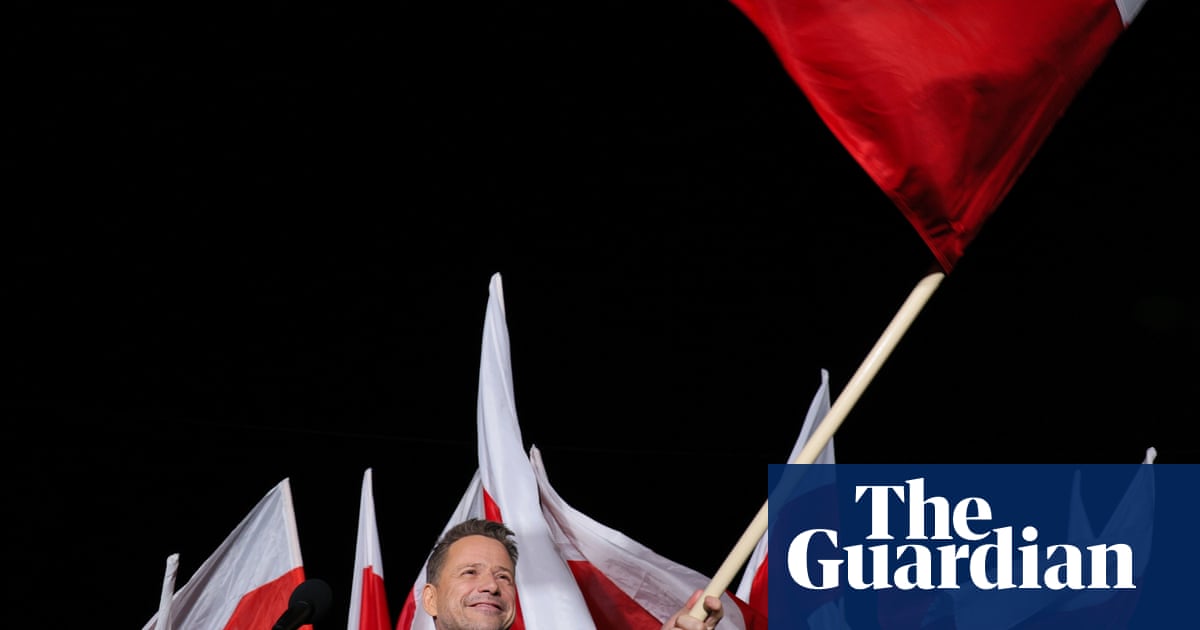Poles are voting in the first round of the presidential election on Sunday, in a vote seen a “make or break” moment for the country’s pro-European coalition government, which is still attempting to reverse damage inflicted on the rule of law by the previous populist-nationalist administration it ousted two years ago.
Rafał Trzaskowski, the staunchly pro-European centrist Warsaw mayor from the prime minister Donald Tusk’s Civic Coalition (KO), is the favourite to win the election, but his lead over his conservative rival, the historian Karol Nawrocki, has narrowed over the last few weeks of the campaign.
Since coming to power in 2023 on a wave of discontent with the populist right Law and Justice party (PiS), the government led by the former European Council president Tusk – an eclectic coalition spanning parties from left to right united in their opposition to the previous government – has struggled to follow through on promises to reverse illiberal justice reforms and liberalise abortion laws.
The slow progress left some voters frustrated with the new administration, which blamed the deadlock on the looming threat of the president’s power to veto legislation.
“This election comes halfway through the parliamentary cycle, which makes it tricky for the coalition-affiliated candidates as they inevitably get burdened by the voters’ frustrations with the government,” Ben Stanley, a political scientist at SWPS University in Warsaw, told the Guardian.
“It remains to be seen if the voters double down on the decision they made in 2023 or explore alternatives as a result of their frustration with the pace of reforms,” he said.
The outgoing president, Andrzej Duda, is a close ally of the previous PiS government and a supporter of Donald Trump. He opposed reforms pursued by the new administration and blocked some decisions, including ambassadorial nominations.
A potential opposition win would extend the current standoff, prompting years of political instability.
Nawrocki claimed he had secured Trump’s backing in their White House meeting earlier this month, boasting a close relationship with the US at a time of heightened security concerns over the Russian invasion of Ukraine.
But his campaign was beset by questions over the circumstances in which he bought an apartment from an elderly man, with suggestions that he failed to meet his obligations to provide care as part of the transaction. He denies the allegations.
In polls published before the country went into electoral silence on Friday, Trzaskowski, who lost to Duda in 2020, and Nawrocki were expected to comfortably come in the first two places, progressing to the run-off on 1 June.
However, in a sign of growing frustration among voters, the combined vote share of the top two candidates is forecast to be the lowest since the first presidential election in 1990.
“People are quite exhausted with that duopoly. It’s effectively been the same battle with different avatars standing in the place of party leaders Tusk and Kaczyński for 20 years,” Aleks Szczerbiak, a professor of politics at the University of Sussex, told the Guardian.
Sławomir Mentzen, an anti-establishment libertarian far-right leader, is expected to come third, despite briefly challenging Nawrocki’s position in second.
Adrian Zandberg of the hard-left Razem (Together) party and Magdalena Biejat of the New Left are expected to battle for positions between fourth and sixth in what could be the left’s highest combined vote share in a presidential election since 2010.
The polls close at 9pm local time (8pm BST). The new president will take office in August.
